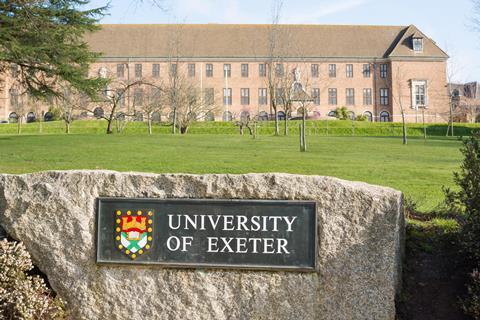The Post Office Horizon scandal was in part caused by lawyers putting at risk their responsibilities to the court by forming ‘clever’ strategies to defeat opponents, according to new research by legal academics.
The academics found that Post Office lawyers adopted a ‘flat earth’ approach to defending the organisation at all costs through an ‘artful’ case strategy which created a divergence between justice and truth. This approach increased incrementally as the strategy was rolled out to a wider number of cases, preventing the scandal from being exposed much earlier.
The working paper, by Richard Moorhead and Sally Day from the University of Exeter Law School and Karen Nokes, from the Faculty of Laws, UCL, looked in particular at the approach to debt recovery litigation involving Bridlington sub-postmaster Lee Castleton.
The paper stressed that it made no allegations of professional misconduct, but it did conclude that lawyers acting for the Post Office in the Castleton case had proceeded to ‘lean very heavily’ to the interests of the client rather than other elements of the professional code.
‘Litigation case strategy, particularly artful case strategy, may be one driver of professional error,’ said the report. ‘In layman’s terms, ‘clever’ ideas may blind us to reality or they may give us excuses to pretend that the world is how we want it to be, rather than how it is.
‘Clever strategy, and the tactical defence of that strategy, may be inconsistent with the overriding principle which governs our civil courts.’
In the Castleton case from 2006, which resulted in the former sub-postmaster being ordered to pay £26,000 to cover his branch shortfall and £300,000 in costs, the Post Office's strategy was to put the burden on Castleton to prove that the Horizon IT system was not working properly – effectively reversing the burden of proof. It succeeded in the High Court but was rejected when re-examined by Mr Justice Fraser in the Bates litigation in 2019.

Looking at the evidence at the Post Office Inquiry of Richard Morgan KC, who led the case against Castleton, the report concludes it was apparent that protecting the integrity of the Post Office was a central concern of his client.
According to the report, Morgan was successful in persuading the judge in the Castleton case to exclude evidence of what was happening in other branches. The Post Office managed to reduce the possibility of evidence being called about Horizon’s reliability and so removed the need to prove its reliability.
‘Because the burden of proving Horizon was flawed now fell on his opponent, Morgan did not have to worry about it as much as he might otherwise have done and perhaps should have done,’ the report added.
As it was, Castleton was required to prove Horizon was faulty but had no evidence to show it – and all while representing himself. The review added: ‘It seems reasonable to assume that, at the very least, a flat earth strategy would have been executed with more restraint, and it would have been more likely to fail.’
Professor Moorhead said: ‘Our analysis of Lee Castleton’s case shows how misaligned the desire to win and justice can become. The problems are particularly acute when one side is unrepresented. There is a question here whether the lawyers were overly influenced by a legitimate, if opportunistic, strategy. The courts need to think long and hard about allowing artful legal argument to shift evidential burdens onto those least able to prove their case.’
This article is now closed for comment.





























17 Readers' comments